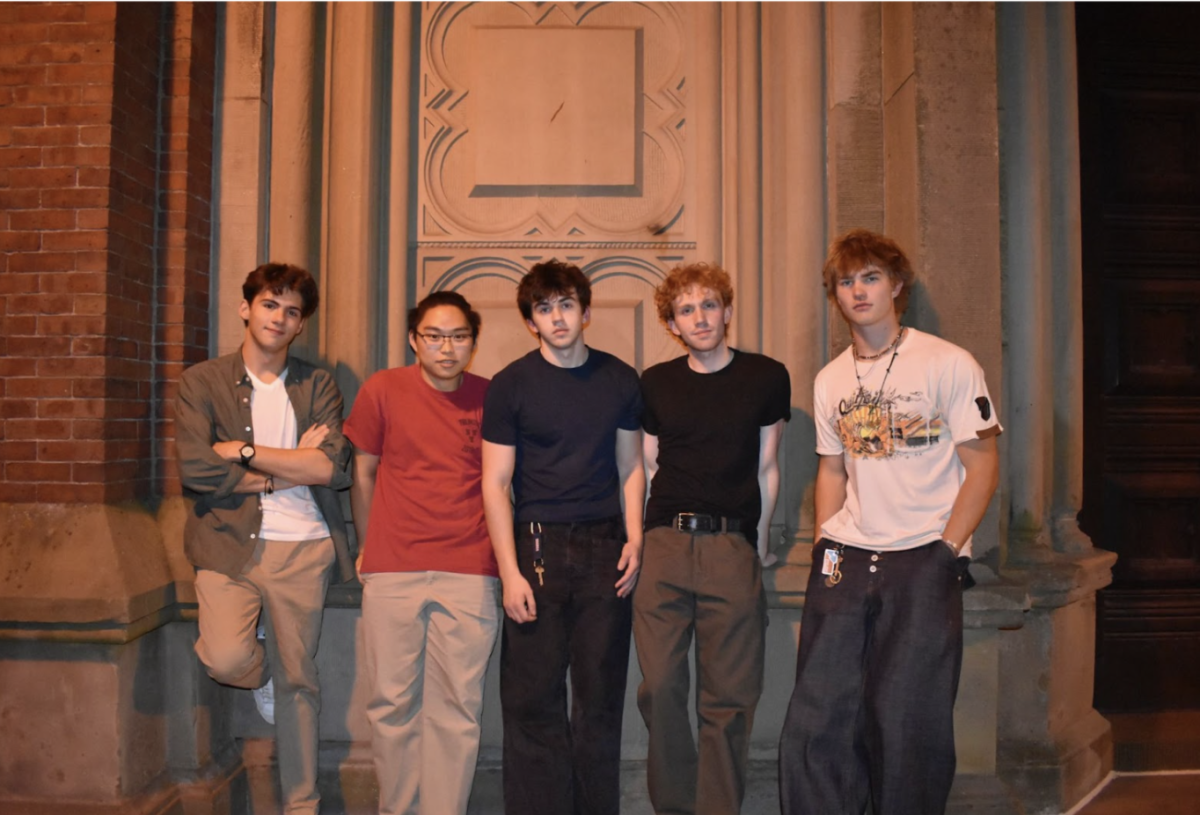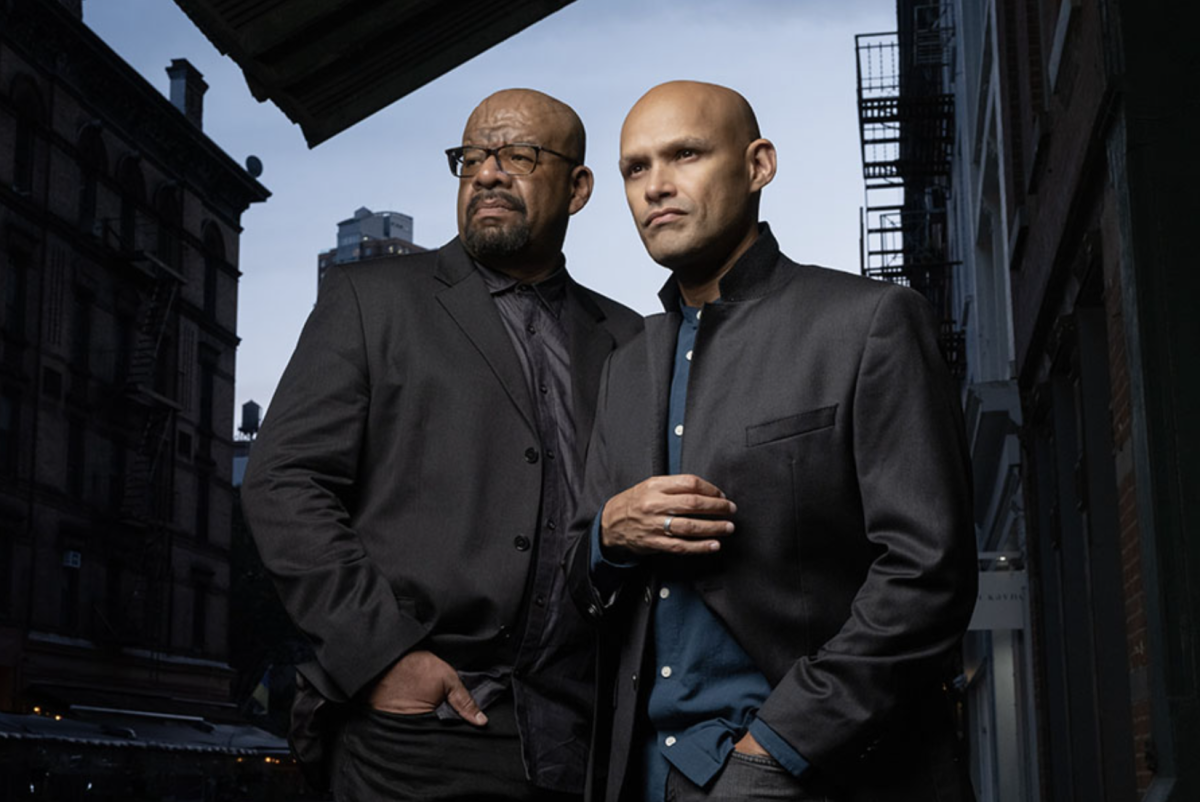Marvel’s newest film, “Eternals,” was released in theaters on Nov. 5 to much anticipation. The film raises the stakes for the Marvel universe significantly, but amidst all that cosmic chaos still remains grounded through the performances of its diverse cast.
The film spans 7,000 years of the said Eternals’ lives, from when they were initially sent to the Earth by the Celestials, cosmic beings who helped create the universe, to protect humanity from the Deviants, an ancient race of predators that attempt to wipe out all lifeforms on any planet they inhabit. These Eternals also help humanity develop by providing them with innovation for their civilizations.
The film begins in the present day where the Deviants have returned unexpectedly and the Eternals have to fight to save humanity again. Throughout this, there are multiple flashbacks explaining where the Eternals have been and how they get the band back together after a split five centuries ago. Although all that exposition could have bogged down the movie — and it does at some points — it makes up for it by fleshing out its characters and their relationships throughout all their history together, helped along by some beautiful visuals.
The film begins with Sersi (Gemma Chan), who has a job at the Natural History Museum in London. Sersi lives a relatively normal life for an immortal being and is in a relationship with Dane Whitman (Kit Harington), a normal, mortal, human. Their quiet life is interrupted by the appearance of a Deviant and Sersi’s ex Ikaris, played by Richard Madden (she evidently has a type). Sersi has also been living with Sprite (Lia McHugh) who has always been in the form of a teenager and has the power to create and manipulate illusions (although she isn’t given much to do with them).
The catalyst for the events of “Eternals” is the death of Ajak (a rather underused Salma Hayek), the mother figure and guide of the Eternals, which then makes Sersi the reluctant leader. Sersi is a relatively reserved person, so her being thrusted into this role when there are many louder voices around her makes for an interesting arc, although she did play second fiddle to Ikaris for a little bit longer than I would have liked.
The rest of the Eternals are also scattered throughout the world after their separation five centuries ago when they killed what they thought was the last Deviant. Phastos (Bryan Tyree Henry), the inventor, now has a mortal husband, Ben, and an adorable son, Jack. Henry also brings some more subtle humor that serves as a good balance to Kingo’s (Kumail Nanjiani) more obvious comic relief. Kingo is a movie star, and has been for a few decades, through the convenient excuse of him being a part of a Bollywood dynasty. His “valet,” Karun (Harish Patel), is quite the scene-stealer and adds a little bit more humanity to this lore-heavy story.
Gilgamesh (Ma Dong-Seok) and Thena (Angelina Jolie) are together in Australia, where Gilgamesh is looking after Thena, whose mind is fractured by her memories of the violence of her past battles, presumably a form of PTSD. Their connection and trust in each other is so endearing, as Gilgamesh volunteers to take care of Thena for as long as they live, even in her unstable state, just to protect her. Jolie portrays Thena with a fighter’s ferocity but an equally compelling vulnerability. Beyond some humorous moments with Kingo and some touching moments with Thena, Dong-Seok is not given much to do with Gilgamesh and his story. Gilgamesh is unfortunately killed in the Eternals’ bout with the Deviants, despite my hopes that he would survive.
Druig, who has the power to control minds, lives with and controls an Indigenous community in the Amazon rainforest. The film does indicate that what he is doing is wrong, but does not really dwell on the ramifications of Druig’s philosophy that humans would be so much better off with the Eternals being in control. His arc was intriguing, since he is the only one of them who wants to defy the Celestials’ instructions to not interfere. Druig can control minds, and thus can sense others’ emotions as well, moving him to want to stop humans’ pain, albeit in a rather extreme way.
Makkari (Lauren Ridloff), the MCU’s first deaf superhero, only appears in the later half of the film, and has the power to sense vibrations and has superspeed — one of the cooler depictions of superspeed I’ve seen in films or television. She is given some very impressive action scenes, but does not have enough screen time to explore her relationship with the other characters. There are hints at a more intimate relationship with Druig, but she does not get as much depth as some other Eternals are afforded. While Ikaris and Sersi, the main couple, did have chemistry, Druig and Makkari were more interesting in their two scenes together, and have quickly become fan favorites.
One of the most shocking revelations is in Sersi’s meeting with the Celestial Arishem (voiced by David Kate) who is responsible for the creation of the Eternals and the Deviants. Arishem, a towering and terrifying figure, reveals that the Eternals were not just created for Earth, but that they have been completing their missions on multiple planets, and have had their memories erased every time. Their mission is actually to help native populations along, so that when they become great enough in number, their energy can help give birth to a new Celestial — which would come at the cost of the planet itself. It is also revealed that Ajak knew this all along.
All of the Eternals are technically the protagonists of the movie, but the center of “Eternals” was Sersi, who can manipulate matter and has the strongest connection to humanity, and her relationship with Ikaris. The primary conflict of the film is between them and their ideas of what the Eternals should be: executors of the Celestials’ will, no matter the consequences, or protectors of humanity. The rest of the Eternals struggle with the same question and pick sides, or step out of the fight altogether, as Kingo does because he does not want to fight his family.
Ikaris has known what the Eternals’ true mission was ever since they went their separate ways. This leads him to killing Ajak, who had wanted to delay the birth of the new Celestial, because of her belief in humanity. He didn’t have the guts to do it himself, so he dropped her into a frozen lake surrounded by Deviants instead. I had my suspicions of Ikaris to begin with after he showed up to protect Sersi at exactly the right time, but this betrayal left me truly hurt. Madden portrays Ikaris’ difficulty with his choices well, but then he basically goes on a killing spree of his family, so all my empathy for him vanished right then. (At the end of the film, he also flies into the sun because he is so tortured by his choices, which seemed a little too on the nose.)
Sprite was also given a direction that I didn’t really like. She is in love with Ikaris, but cannot be with him because he is in love with Sersi, and she is still a teenager, so will never be seen by him in the way she wants him to. This leads her to side with him in their fight, which does not really make sense with how much she loved Ajak, but the film goes to lengths to show that these immortal beings, basically gods, are just as flawed as we are. There was also an attempt to humanize the Deviants more with the humanoid Kro (voiced by Bill Skarsgard), who killed Gilgamesh and absorbed his power and memories, but this is rather abruptly brought up and finished without much exploration (although it was satisfying to see Thena dispose of him very quickly).
By the end of the film, the Eternals separate again as one group sets out to inform the other Eternals of their true purpose and to help save other planets, and one stays on Earth to protect their planet. The earthbound Eternals are taken by Arishem so that he may decide whether humanity was worth saving based on their memories. This is hinted at in the post-credits scene, which sets up the entry of Eros, the brother of Thanos (Harry Styles, surprisingly), also an Eternal.
As has been noted before, the cast is quite diverse, which is a considerable step for the MCU after having more than ten movies out of 26 with a “Chris” in the top billing, and signals Marvel’s venture into newer and more diverse properties. This diversity had an impact too. In the week after “Eternals” release, Google searches spiked for “learn sign language for beginners” by 250% after the appearance of Marvel’s first deaf superhero, Makkari. The movie also features its first gay couple on screen together, Phastos and his husband. In comparison to Jack Kirby’s “Eternals” comics, this is wildly different, since most of the original Eternals were white, and a few were gender-swapped for the movie.
However, “Eternals” also received mostly negative reviews from critics, and is currently rated 48% on Rotten Tomatoes. This rating is lower than “Iron Man 2” and “Thor: The Dark World,” arguably the worst MCU films. I don’t know if I agree with that rating, although I do understand the divided opinion on the film. That’s not to say that anyone criticizing the film hates diversity; that is unequivocally not the case. There are, in fact, there are many critics of color who have criticized the film for its exposition-heavy tone. However, with the limited amount of diversity in movies in the first place, it is inevitably going to be used for the argument that “wokeness” is what ruins films. Hopefully, that will not discourage Marvel to continue greenlighting more diverse projects beyond Phase 4. Side note: true inclusion will only be achieved when films with more diversity are allowed to be bad too, without being the defining metric of diversity altogether.
Marvel has a thing for trying to make their films always set up to something bigger. “Eternals,” which literally spanned the cosmos, also does the same in its post- and end-credits scenes. This movie was an entry point for all of its characters, and while not all of them survived, the ones who did are now in the roster of MCU heroes, and the film made sure to make this known. While the cast did a great job of humanizing their (non-human) characters, this movie did serve to mainly be an origin story: 7,000 years of one. “Eternals” was also hailed as something different from the rest of the MCU, but it does tend to fall into some of Marvel’s familiar patterns: references to other superheroes in the universe, lots of CGI fights (although done pretty well for the most part) and a big final fight. As for the Eternals themselves, all we know is that they will return, but thus far, we don’t know where or when.
“Eternals” is an ambitious film, encompassing 7,000 years’ worth of lore, and draws on the more mythological aspects of the superhero (the assumption is that human mythology is based on them), but stays connected to its humanity through its exploration of its characters.





